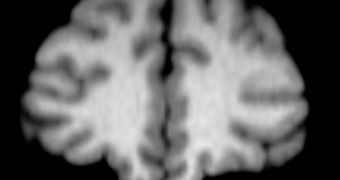Investigators have determined in a new study that the amount of brain shrinkage that humans exhibit as a result of normal aging is unparalleled in the natural world. The conclusion was drawn after scientists conducted a comparative analysis between humans and chimps.
The researchers looked at how the brain evolved with old age in the two species. Chimpanzees were selected because they are Homo sapiens’ closest living relatives, and as such bear the closest genetic resemblance to us.
When humans lose brain mass, as they age, they begin to suffer from a host of health problems and mental illnesses that stem directly from the fact that their cognitive functions are impaired.
In order to understand why this appears to be happening exclusively to humans, researchers organized some experiments to understand brain aging in other species as well. Expert from eight American universities were involved in the research.
The team was led by expert Chet Sherwood, who holds an appointment as an anthropologist at the George Washington University (GWU), in Washington, DC. He and his colleagues were very interesting in finding common mechanisms of brain degeneration in humans and chimps.
Using magnetic resonance imaging (MRI), anthropologists, neuroscientists, psychologists, biologists, and veterinary professionals with the research group mapped the space occupied by several key areas of the brain in adult individuals from the two species.
Interestingly, the research revealed that chimps were not likely to experience brain loss or deterioration as they grew old, in either of the areas that were targeted during this investigation.
The fact that our brains are degenerating may be a direct result of the fact that our species has evolved to life longer, or that we use our brains more than any other species on the planet.
“We were most surprised that chimpanzees, who are separated from humans by only 6-8 million years of independent evolution, did not more closely resemble the human pattern of brain aging," Sherwood explains.
“It was already known that macaque monkeys, separated from humans by about 30 million years, do not show humanlike, widespread brain atrophy in aging,” he adds.
The new work – which was funded by the US National Science Foundation (NSF) – is detailed in the latest issue of the esteemed journal Proceedings of the National Academy of Sciences (PNAS).

 14 DAY TRIAL //
14 DAY TRIAL //